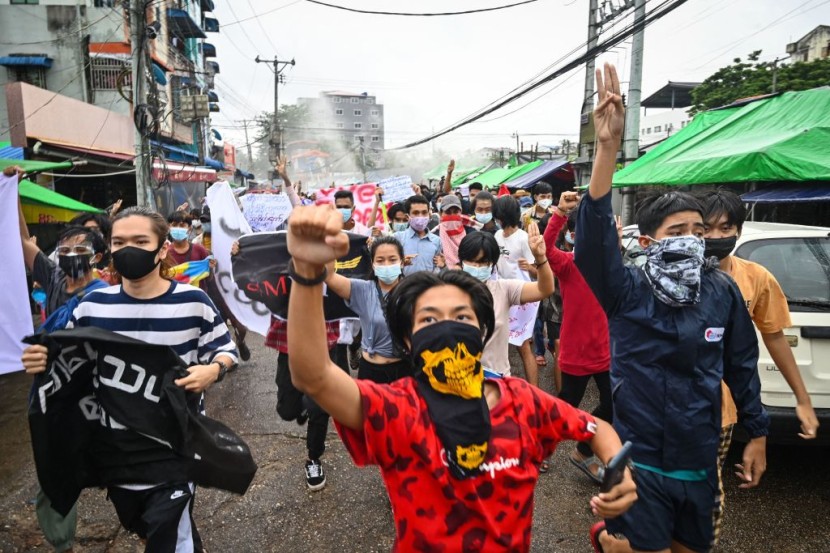
Myanmar's junta tribunals on Tuesday imposed death sentences to dozens of protestors following unjust trials.
Military tribunals handed down death sentences to 65 people in areas of Yangon, which is currently under martial law imposed by the junta in March. Under martial law, the country's military forces now holds the power and authority to make executive and judicial decisions, including instituting the death penalty.
Myanmar Military Junta
Of the 65 people sentenced to death, 26 are currently under the junta's custody. Thirty-nine others were convicted in absentia.
The recent decisions have now prompted human rights advocates to criticize the junta, which has been involved in a series of mass shootings of protestors in recent months.
"Apparently aimed to chill the anti-coup protest movement, these death sentences should serve as a stark warning to foreign governments that urgent action is needed to show the junta that there will be a reckoning for its crimes," Shayna Bauchner, Asia researcher, said, according to Human Rights Watch.
Under Myanmar's martial law orders, the military can carry a potential sentence of capital punishment on people who commit one of the 23 categories of crimes, including high treason, hindering Defense Services and Government employees, Section 505 of the Penal Code, murder cases, rape cases, banditry, corruption, cases against press, and media law or cases against anti-terrorism law, as reported by The Global New Light of Myanmar.
The martial law regulations also requires the SAC chair, Sr. Gen. Min Aung Hlaing, to approve all orders of capital punishment, as well as bar defendants from appealing the tribunal's decisions.
Defendants may apply to Gen. Hlaing to reverse the decision. However, applications can only be filed through prison officials and not lawyers, according to Radio Free Asia.
Death Sentences
The death sentences were imposed in six batches, with the junta holding the trials between April and June. The legal proceedings were carried out behind closed doors inside the notorious Insein Prison.
According to human rights advocates, detainees have been deprived of their basic fair trial rights. Additionally, the rules of evidence in civilian courts also do not apply in the military tribunal.
Some detainees in death row also reported suffering extreme torture and ill treatment under military custody.
In April, a 19-year-old teenager recounted his three-day stint in a military detention camp in Myanmar, which led to purple welts, bruises, and deep lacerations on his body. According to his account, Myanmar military officer who detained him repeatedly beat him using cable wires, the butts of guns, and glass bottles. The military officials also tied the victim's hands and cut several parts of his body.
"The commander tied my hands from the back and used small scissors to cut my ears, the tip of my nose, my neck and my throat. (He) hit my head with a glass bottle, beat me up, pointed at me with guns but the bullets did not come out. He used the gun to threaten me as soon as I got to their station. Then he let his fellow soldiers beat me up that night," he told CNN.
The 19-year-old, whose identity was not revealed for safety reasons, was later released by the military but remains in hiding.
Related Article : Tom Barrack, Top Trump Aide, Arrested for Illegal Lobbying
© 2026 HNGN, All rights reserved. Do not reproduce without permission.








